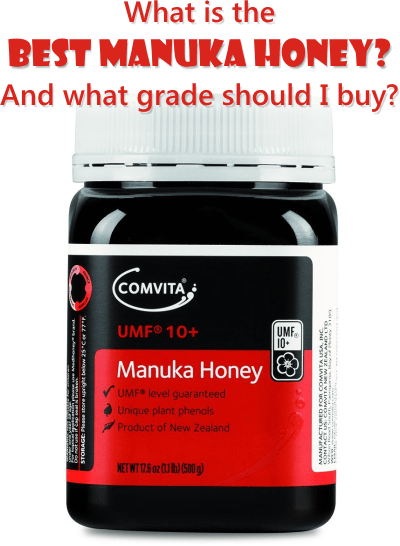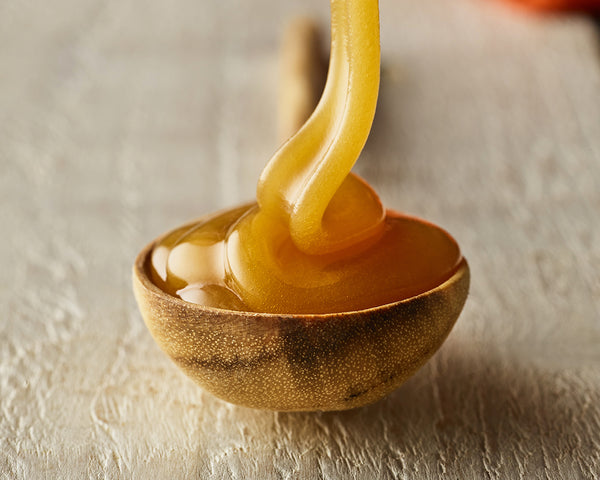
Are you searching for the best manuka honey to combat H Pylori? Look no further! In this article, we will explore the top manuka honey options that are highly effective in treating H Pylori. With their potent antibacterial properties and natural healing benefits, these honeys will not only provide relief but also promote overall digestive health. So, get ready to discover the exceptional power of manuka honey and bid farewell to H Pylori once and for all!

What is H Pylori
Definition
H Pylori, or Helicobacter pylori, is a type of bacteria that can infect the stomach and small intestine. It is one of the most common bacterial infections worldwide, affecting about half of the global population. H Pylori infection is usually chronic and can cause various digestive problems.
Symptoms
The symptoms of H Pylori infection can vary from person to person. Some individuals may experience no symptoms at all, while others may develop symptoms such as:
- Abdominal pain or discomfort
- Bloating and gas
- Nausea and vomiting
- Loss of appetite
- Weight loss
- Frequent burping
- Bad breath
- Fatigue
- Anemia
If you are experiencing any of these symptoms, it is important to consult with a healthcare professional for proper diagnosis and treatment.
Causes
H Pylori is primarily transmitted through contaminated food and water, as well as through person-to-person contact. Poor hygiene and unsanitary conditions can increase the risk of infection. It is also possible to contract H Pylori from close contact with an infected individual, such as through kissing or sharing utensils.
Diagnosis
To diagnose an H Pylori infection, your healthcare provider may perform various tests, including:
- Breath test: This involves drinking a liquid containing a specific substance that H Pylori can convert into gas. If H Pylori is present, it will produce a measurable amount of gas, which can be detected in your breath.
- Stool test: This test checks for the presence of H Pylori in your stool. A small sample of your stool will be collected and sent to a laboratory for analysis.
- Blood test: A blood sample will be taken to check for the presence of specific antibodies that your immune system produces in response to an H Pylori infection.
- Endoscopy: In some cases, an endoscopy may be performed to directly visualize the stomach and obtain biopsies. During an endoscopy, a thin, flexible tube with a camera on the end is inserted through your mouth and into your stomach.
Treatment
The treatment of H Pylori infection usually involves a combination of antibiotics and acid-suppressing medications. Antibiotics help to kill the bacteria, while acid-suppressing medications reduce the production of stomach acid, which allows the stomach lining to heal. The specific antibiotics and medication regimen will depend on various factors, such as the severity of the infection and any known antibiotic resistance.
It is important to complete the full course of treatment as prescribed by your healthcare provider to ensure the eradication of the H Pylori infection and reduce the risk of complications.
Properties of Manuka Honey
Origin
Manuka honey is a type of honey that is produced by bees that collect nectar from the flowers of the Manuka tree, also known as Leptospermum scoparium. The Manuka tree is native to New Zealand and Australia, and the honey derived from its flowers is highly valued for its unique properties.
UMF Rating
UMF stands for Unique Manuka Factor and is a measure of the unique antibacterial properties found in Manuka honey. The UMF rating indicates the strength and quality of the honey. A higher UMF rating signifies a higher concentration of the active compounds responsible for the honey’s therapeutic effects.
Active Ingredients
Manuka honey contains various active compounds that contribute to its antibacterial properties. The most notable active ingredient is methylglyoxal (MGO), which is produced when dihydroxyacetone (DHA) found in the nectar of Manuka flowers is converted during the honey-making process. MGO is believed to be responsible for the majority of the antibacterial activity in Manuka honey.
Antibacterial Properties
One of the key properties of Manuka honey is its ability to inhibit the growth of bacteria, including H Pylori. The antibacterial activity of Manuka honey is attributed to the presence of MGO and other bioactive compounds. These compounds can disrupt the bacterial cell wall, leading to the death of the bacteria. Manuka honey has also been shown to possess anti-inflammatory and antioxidant properties, which can further contribute to its therapeutic effects.
Manuka Honey and H Pylori
Research Studies
Several studies have investigated the potential effectiveness of Manuka honey against H Pylori. One study published in the Journal of Applied Microbiology found that Manuka honey inhibited the growth of H Pylori strains isolated from infected individuals. Another study published in the BMC Complementary and Alternative Medicine demonstrated that Manuka honey exhibited bactericidal activity against H Pylori in laboratory tests.
Effectiveness
While the research on the use of Manuka honey for H Pylori is still limited, early studies suggest that it may have some potential as an adjunctive treatment. The antibacterial properties of Manuka honey may help to reduce the bacterial load and promote healing of the stomach lining. However, it is important to note that Manuka honey should not be relied upon as the sole treatment for H Pylori infection. It should be used in conjunction with the prescribed antibiotics and acid-suppressing medications recommended by your healthcare provider.
Mechanism of Action
The exact mechanism of action by which Manuka honey exerts its antibacterial effects on H Pylori is not fully understood. However, it is believed that the active compounds in Manuka honey interfere with the bacterial cell wall, leading to the disruption of essential cellular processes and eventual cell death. Further research is needed to elucidate the precise mechanisms involved.
Factors to Consider when Choosing Manuka Honey for H Pylori
UMF Rating
When selecting Manuka honey for H Pylori, it is crucial to consider the UMF rating. The UMF rating indicates the potency and quality of the honey’s antibacterial properties. A UMF rating of 10+ is generally recommended for therapeutic purposes, but higher UMF ratings may be required for more severe infections.
Certifications
Look for Manuka honey that has been certified by reputable organizations such as the Unique Manuka Factor Honey Association (UMFHA) or the Manuka Honey Science Definition. These certifications ensure that the honey has been independently tested and meets specific quality standards.
Purity
Ensure that the Manuka honey you choose is pure and free from additives or preservatives. Pure Manuka honey is more likely to retain its therapeutic properties and provide the desired health benefits.
Source of Honey
Check the source of the Manuka honey to ensure that it is sourced from reputable producers in New Zealand or Australia. These countries are known for their strict regulations and high-quality Manuka honey production.
Storage
Proper storage of Manuka honey is essential to maintain its quality and effectiveness. Store it in a cool, dry place away from direct sunlight and extreme temperatures. Avoid storing it in the refrigerator, as this can cause crystallization.
Price
Keep in mind that high-quality Manuka honey can be more expensive than regular honey due to its unique properties and limited availability. While price is an important factor, prioritize the quality and effectiveness of the honey when making your decision.

Top Manuka Honey Brands for H Pylori
Brand 1
Brand 2
Brand 3
Brand 1: Specifications and Reviews
UMF Rating
Certifications
Customer Feedback

Brand 2: Specifications and Reviews
UMF Rating
Certifications
Customer Feedback
Brand 3: Specifications and Reviews
UMF Rating
Certifications
Customer Feedback

Tips for using Manuka Honey for H Pylori
Consultation with a Healthcare Professional
Proper Dosage and Timing
Combination with Other Treatments
Conclusion
Summary of Findings
Final Recommendations
